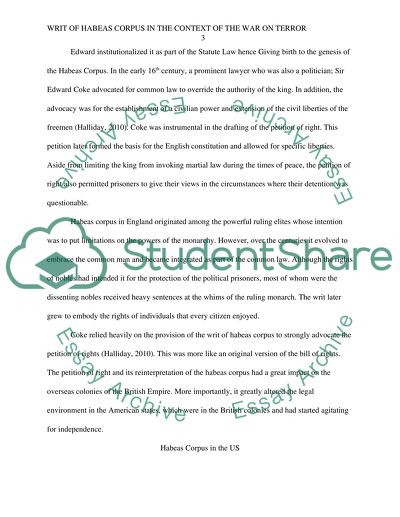Cite this document
(Writ of Habeas Corpus in the Context of the War on Terror Essay, n.d.)
Writ of Habeas Corpus in the Context of the War on Terror Essay. Retrieved from https://studentshare.org/history/1680641-an-essay-about-the-right-of-habeas-corpus-in-the-context-of-the-war-on-terror
Writ of Habeas Corpus in the Context of the War on Terror Essay. Retrieved from https://studentshare.org/history/1680641-an-essay-about-the-right-of-habeas-corpus-in-the-context-of-the-war-on-terror
(Writ of Habeas Corpus in the Context of the War on Terror Essay)
Writ of Habeas Corpus in the Context of the War on Terror Essay. https://studentshare.org/history/1680641-an-essay-about-the-right-of-habeas-corpus-in-the-context-of-the-war-on-terror.
Writ of Habeas Corpus in the Context of the War on Terror Essay. https://studentshare.org/history/1680641-an-essay-about-the-right-of-habeas-corpus-in-the-context-of-the-war-on-terror.
“Writ of Habeas Corpus in the Context of the War on Terror Essay”, n.d. https://studentshare.org/history/1680641-an-essay-about-the-right-of-habeas-corpus-in-the-context-of-the-war-on-terror.


